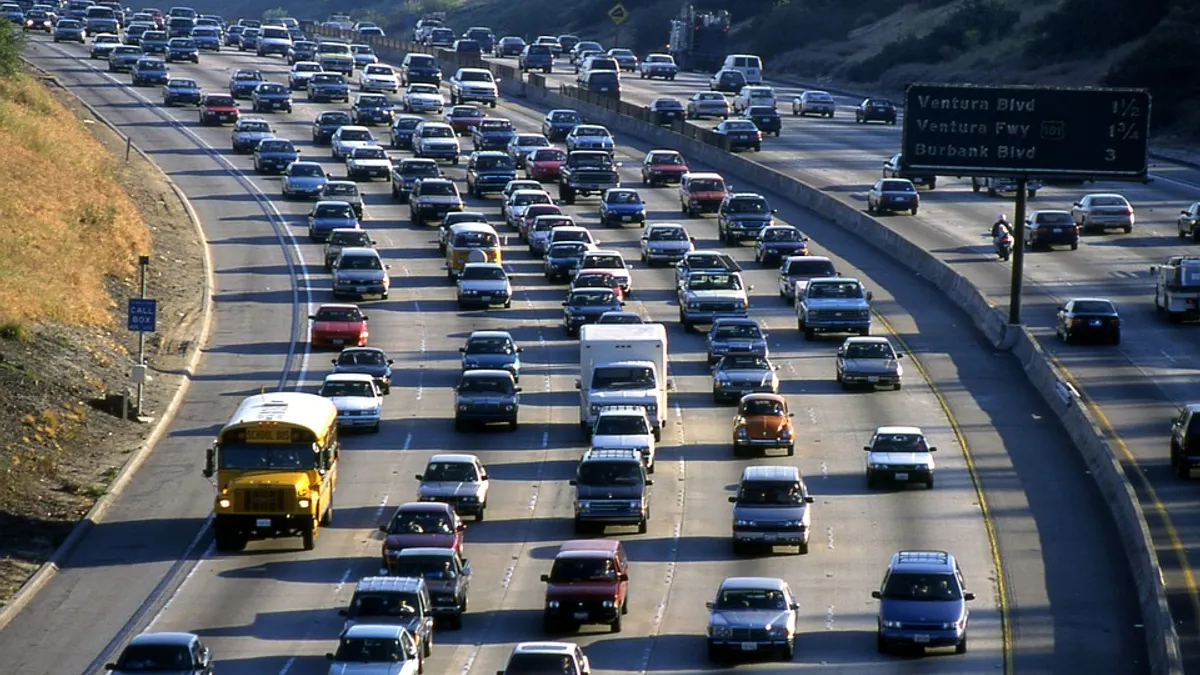Dive Brief:
- The Canadian government signed a Memorandum of Understanding (MOU) with the state of California to partner on reducing emissions from cars and trucks.
- Under the agreement, the two governments will collaborate as they set regulations on tailpipe emissions, and work to harmonize clean car standards "where applicable." The two will also share technical information and partner on vehicle technology research.
- Canada had previously aligned with the U.S. on vehicle emissions rules, but said it is re-evaluating that after the Trump administration moved to weaken those standards. California, which can get a waiver to set its own standards, is suing the White House over the rolled back standards.
Dive Insight:
The Trump administration is expected to finalize its plans this summer to roll back fuel economy standards, freezing them at the 2020 target of 37 miles per gallon rather than the target of 54.5 mpg by 2025 set under President Obama. That is sure to set up a legal showdown with California and the 13 other states that match the state’s standards, and could throw the North American car market into some chaos.
Mary Nichols, the chair of the California Air Resources Board, said on a press call with reporters that the prospects of a favorable deal with the White House were "not looking very good at the moment." A drawn-out court fight and the potential to have some states set different standards than the rest of the country is a messy one for automakers, who have urged the administration to keep negotiating with California.
Bringing Canada into the fold, Nichols said, can "only be helpful" as a signal to the industry and other stakeholders about the desire for cleaner cars. As to whether the MOU was meant as a signal to the White House, Nichols said it had been in the works for a long time.
The MOU does not commit Canada to matching California’s standards, although it does signal that Canada is interested in higher standards as part of a climate change plan. The government has also been working on a low-carbon fuel standard that would promote cleaner vehicles, and has passed a $5,000 tax incentive for zero-emission vehicles.
Some local governments have gone even further; earlier this month, British Columbia passed a law requiring that all light duty cars and trucks sold there be emissions-free by 2040.











